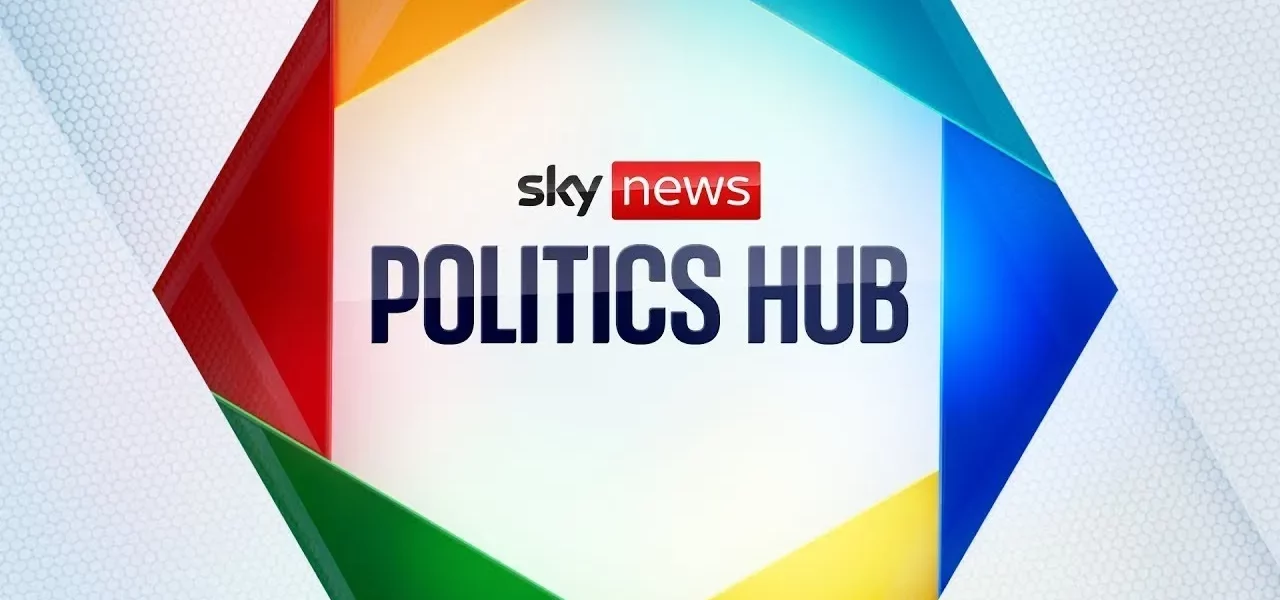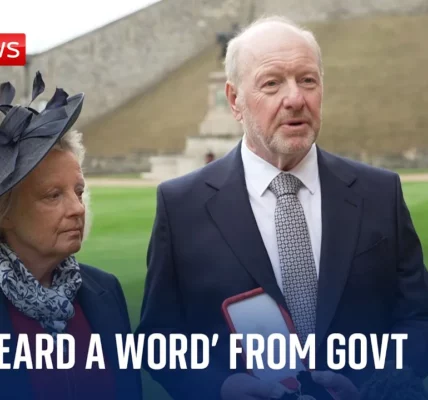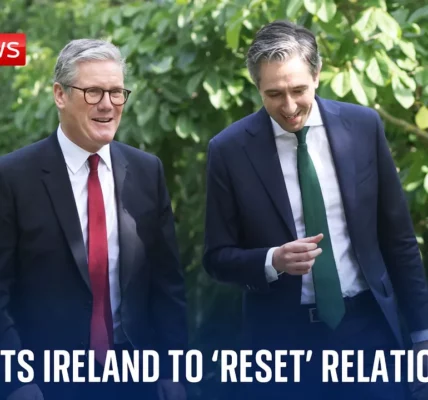Historic Changes in UK Parliament: Keir Starmer’s First Speech as Prime Minister

Welcome to a detailed exploration of a momentous occasion in UK politics as Keir Starmer delivers his inaugural address as Prime Minister. This article covers the political transitions, reactions from various parties, and the future implications for governance in the United Kingdom.
Introduction
The recent gathering of Members of Parliament (MPs) in the House of Commons marked a significant historical moment as the Labour Party assumed control of the government for the first time in over a decade. With Keir Starmer addressing Parliament as Prime Minister for the first time, the atmosphere was charged with both excitement and apprehension. This article delves into the implications of these changes, the reactions from the opposition, and the future direction of UK politics.
Keir Starmer’s Inaugural Speech
Keir Starmer’s first address as Prime Minister was a defining moment that set the tone for his administration. The speech emphasized diversity, unity, and a commitment to effective governance:
- Praise for Diversity: Starmer highlighted the importance of a diverse Parliament that reflects modern Britain.
- Commitment to Accountability: He promised a professional and effective opposition to ensure the new government remains accountable.
- End of “Leveling Up”: The controversial phrase “leveling up,” which had been a hallmark of the previous Conservative administration, was officially abandoned, causing friction with former Prime Minister Boris Johnson.
Starmer’s focus on inclusivity and accountability aimed to resonate with both MPs and the public, fostering a sense of hope for a new political era.
Parliament’s New Landscape
The Commons has undergone a notable transformation with a new cohort of MPs, making it the most diverse assembly in its history. This section explores the changes:
Diverse Representation
With over 300 new MPs, including a robust representation from the Liberal Democrats and other parties, the dynamics within the Commons have shifted significantly:
- Increased representation from historically underrepresented groups.
- A significant presence of Liberal Democrats, marking their largest representation in a century.
Institutional Memory
Despite the influx of new MPs, seasoned politicians like Sir Edward Lee, the new Father of the House, bring invaluable experience. This blend of new perspectives and historical knowledge is crucial for navigating future challenges.
Conservative Party’s Response
As the Labour Party celebrates its victory, the Conservative Party is in a state of reflection and restructuring. Key points include:
Election of New Chair
The election of Bob Blackman as the new chair of the 1922 Committee symbolizes an important step in rebuilding the party:
- His role will be pivotal in organizing any potential leadership contests.
- Concerns arose regarding the voting process, highlighting internal discord within the party.
Facing the Future
Rishi Sunak’s leadership is under scrutiny as questions about his future arise. The Conservative Party must address the reasons for its electoral defeat and rebuild its image:
- Reassessing policies that resonated with the electorate.
- Engaging with grassroots members to define the party’s direction.
- Developing a coherent strategy to regain public trust.
International Relations and Future Challenges
As Keir Starmer prepares for his first overseas visit to the NATO Summit in Washington, international relations are at the forefront of his agenda:
Support for Ukraine
Starmer’s commitment to strengthening alliances and supporting Ukraine against Russian aggression is crucial:
- Engaging with global leaders to reinforce NATO’s unity.
- Addressing defense spending and military support for Ukraine amidst ongoing conflict.
Domestic Focus
While international relations are pressing, Starmer must also focus on domestic challenges, particularly housing and economic recovery:
- Promising to build 1.5 million homes during his term.
- Addressing the acute housing crisis exacerbated by previous policies.
Conclusion
The transition of power from the Conservative to the Labour Party marks a pivotal moment in UK politics. As Keir Starmer embarks on his premiership, the challenges ahead are significant, requiring a blend of renewed public trust and effective governance. Moving forward, it will be essential to monitor the Labour government’s progress on its ambitious agenda while observing how the Conservative Party adapts to its new role in opposition. For continued updates and in-depth analyses of UK politics, visit our related articles section.
Call to Action: Stay informed on the latest developments in UK politics by subscribing to our newsletter and accessing more insightful articles on our website.
“`




